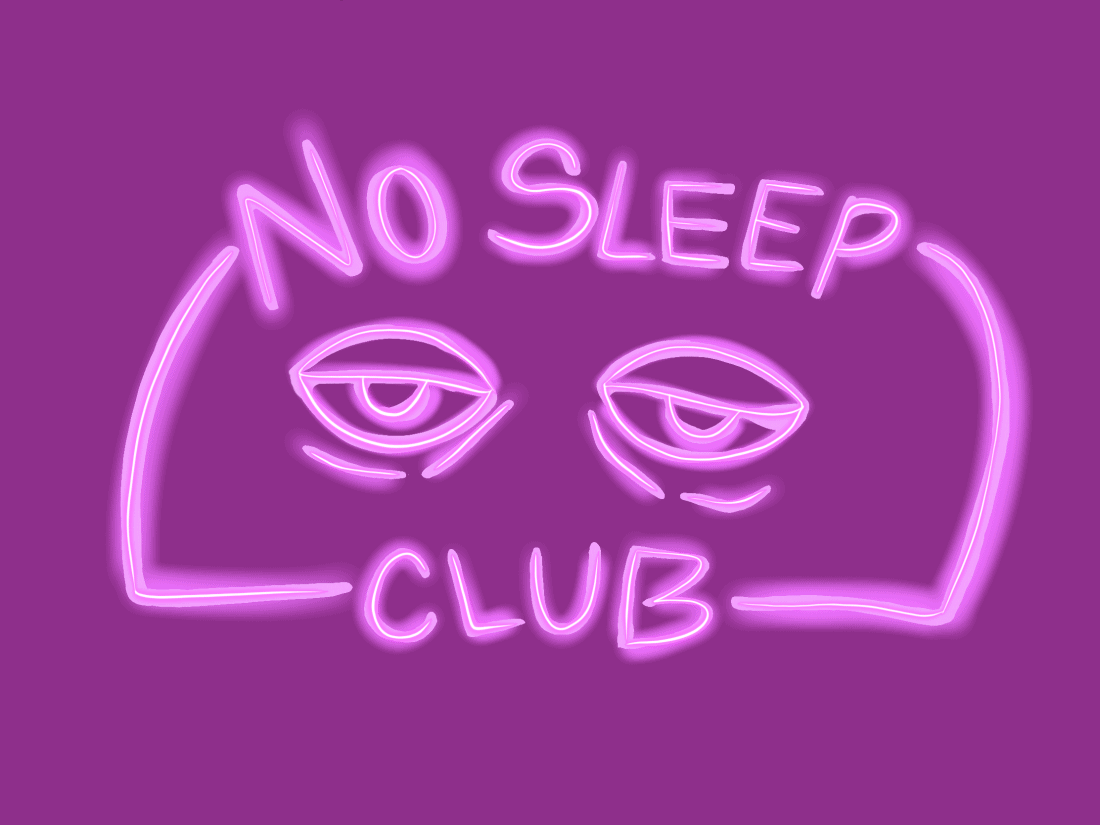
Students’ lack of awareness about the importance of sleep compounded with neglecting their body’s cues has a University of Saskatchewan sleep researcher worried about their overall health.
“It’s getting worse,” said Dr. Robert Skomro, department head of respiratory, critical care and sleep medicine at the U of S.
“Over the last few decades, sleep duration has diminished. We are driven to achieve and with work, social and family pressures, we often don’t prioritize sleep,” Dr. Skomro said.
Students are familiar with this desire to achieve more and the pressures that go along with that. The consequences for neglecting assignments are known, but we often do not consider the consequences of neglecting sleep.
Busy students know they should be getting more sleep. Aubrey-Anne Laliberte-Pewapisconias, an Edwards student with plenty of responsibilities on her plate, is a prime example of the student struggle with sleep.
“I think I need eight [hours of sleep], but I usually only get about five,” said Laliberte-Pewapisconias, who is the head of the Indigenous Business Students’ Society, an Edwards JDC West delegate, a member of the Edwards Business Students’ Society and of course, a part-time worker.
Second-year nursing student Nathan Johnson takes four demanding classes, works part-time on the side and makes a conscious effort to network and build contacts. Johnson knows that when he does not get enough sleep, he is not as productive, feels lazy and depressed.
Savannah Rempel, a fourth-year psychology student, says that when she does not get at least seven hours, she cannot think as clearly and her emotions run high. As a teacher assistant and a peer mentor for the College of Arts and Science, she knows her cognitive function is key.
When it comes to how much sleep is needed for each individual, Dr. Skomro says it depends.
“You can’t say with certainty that people need seven hours or eight hours. It depends on the individual,” Dr. Skomro said. “There is a usual range of seven to nine hours, however, one to two per cent of the population only needs five to six.”
Dr. Skomro says many people think they are part of that one or two per cent of the population that only needs about five hours of sleep. This perception is where the disconnect exists. Dr. Skomro says it has been proven that most people who think they are getting enough sleep would sleep a lot longer if they let their bodies decide.
“When we know we are thirsty, we reach for a drink. Not all of us know when we are sleepy,” Dr. Skomro said.
Dr. Skomro says people should be honest with themselves and find out why they need so much caffeine to combat poor sleep.
“We either ignore the signals [that we are sleepy] or subconsciously reach for products that help you with not feeling sleepy,” Dr. Skomro said.
Although it can be an effective tool by increasing mental focus and concentration, caffeine can also significantly harm your circadian rhythm.
“Caffeine can lead to sleep issues and then fatigue in the middle of the day and then you reach out for another one of these [caffeinated] products,” Dr. Skomro said.
Lastly, do not ignore the dominant presence of technology in our lives. Our dependence upon it is taking a toll on our bodies’ circadian rhythms. Even the smallest light can cause a disruption. An hour and a half of technology before bed can mean inhibited melatonin release.
The sleep guide for students
1. Recognize the importance of sleep and plan around it
The first step to improvement is recognizing the problem and being disciplined about making changes. Find out how much sleep your body needs to perform at its best, and you can plan your schedule around those hours, always making sure to schedule in downtime before bed.
2. Manage your caffeine intake
Start tracking your caffeine intake by volume, frequency and the time of day. Analyze why you are drinking the caffeinated beverage and decide if that is what your body actually needs.
3. Consider your alcohol consumption
Whatever role alcohol plays in your life, understand that it does not mix well with your sleep health. Alcohol enables people to fall asleep quicker, but it significantly reduces the rapid eye movement, known as REM, a stage of sleep your brain needs for regular cognitive function. Additionally, alcohol can suppress breathing and contribute to sleep apnea.
4. Set your environment up for sleep
Your sleep environment is a big factor towards a good night’s sleep. Make sure it is a completely dark space with the least amount of noise possible. The less stimulation in the room, the better.
Remember, humans are creatures of habit so if you are binge-watching Netflix, you are not setting yourself up for a good night of sleep.
5. Turn off the technology
To allow a normal circadian rhythm, avoid exposing yourself to screens that emit blue light for some time before bed. Switching your devices to a warmer light or buying blue-light glasses are good options to consider.
—
Alayna Moxness
Graphic: Yashica Bither
Leave a Reply